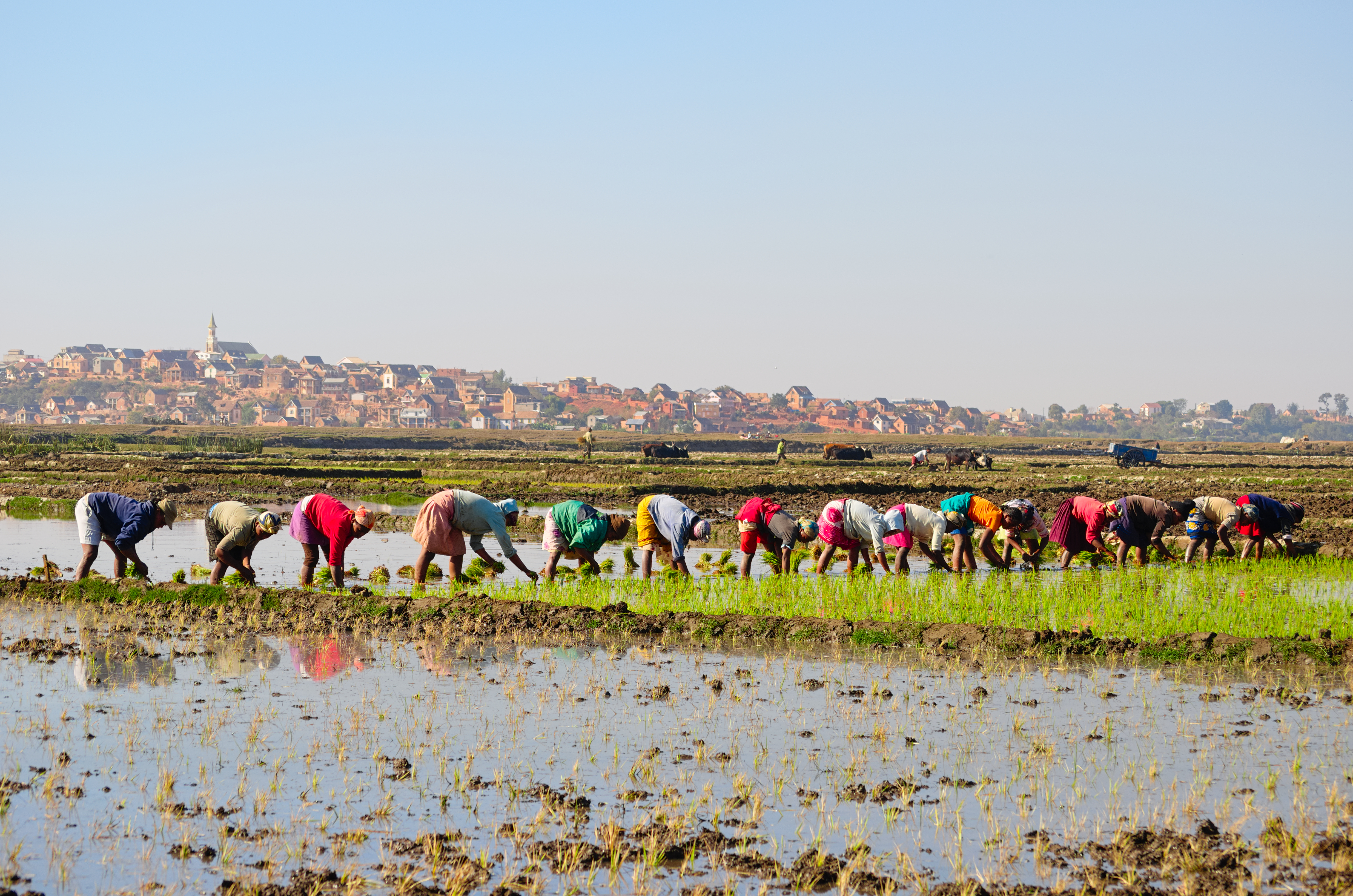Part of the Food Policy Snapshot Series
Policy Name:
Urban Agriculture Program
Location:
Antananarivo, Madagascar
Population: 1,391,433 (World Population Review, 2017)
Overview:
Madagascar suffers from extreme levels of food insecurity and malnutrition. The Urban Agriculture Program in Antananarivo is a collaboration with the Île-de-France Region that uses French expertise to improve food security in the city by increasing the reach of urban agriculture. The program has developed a variety of projects that seek to address the specific problems facing the city’s food supply.
Progress to date:
In its first year, 2011, the program reached around 100 families. In 2017, it reached over 15,000 people. That year, it also received the second highest score in the Milan Urban Food Policy Pact Awards, granting the city of Antananarivo an endowment of €15,000.
Program/Policy Initiated:
The program was conceived of in 2009 and officially began in 2011.
Food policy category:
Urban agriculture
Program goals:
The program was created to improve food security in the city of Antananarivo utilizing urban planning expertise from the Île-de-France Region. It aims to do that through two specific objectives:
- Promoting the installation of micro-vegetable gardens in the city’s low-income neighborhoods.
- Creating income-generating activities by setting up sales channels for fresh vegetables produced locally.
How it works:
The Urban Agriculture Program is a collaborative effort between the Île-de-France Region (made up of Paris and its surrounding area) and the Urban Community of Antananarivo, utilizing the operational platform established by the Institut des Métiers de la Ville Antananarivo (IMV). IMV has developed several programs to address food insecurity and improve the state of urban agriculture in the city of Antananarivo. Programs include:
- Exchanges between Malagasy and French Students – Each year, students from the major agronomy schools of the Île-de-France Region travel to Antananarivo, where they are paired with local agronomy students. Together, they formulate projects to advance urban agriculture in the city.
- Carrot City – Carrot City is a traveling exhibition that educates the public about urban agriculture initiatives around the world through drawings, sculpture, photos, and text.
- Experimentation at the municipal nursery – The municipal nursery in Antanimena (a small town in the south-west of Madagascar) acts as an experimental space where technicians from Antananarivo conduct experiments on composting, seed reproduction, and the effective use of technology.
- Vegetable gardens in primary public schools and social centers – School meals in Madagascar are often lacking in vegetables. Vegetable gardens in schools serve the dual purpose of interactive educational tools and sources of nutritious food for students.
Why it is important:
Madagascar is among the six countries in the world with the highest rates of chronic malnutrition. According to UNICEF half of all children suffer from stunted growth due to malnutrition. A study from the University of Bourgogne shows that malnutrition is particularly prevalent between rice harvests, when cassava makes up a large part of Malagasies’ diet. Cassava is high in carbohydrates but low in other important nutrients. Urban agriculture can help fill the nutrient gap for poor Malagasies.
Madagascar has been especially vulnerable to changing climates, cycling through periodic floods as well as droughts. In late 2016, the World Bank approved a $35 million grant to fight food insecurity in the country, which had been experiencing poor crop yields since 2013 due to locust invasions and an ongoing El Niño-induced drought. Over one million people in the south had become food insecure. Urban agriculture has the potential to augment food supplies that are diminished by extreme weather events and changing climate.
Although Madagascar’s unemployment is extremely low – 1.8% in 2014 according to the United Nations – 76.5% of the population lives in poverty. Urban farming may provide additional income for the city’s poor.
Evaluation:
Evaluations are conducted by the IMV. The program has received international recognition and has grown considerably over the last six years.
Learn more:
https://www.imvtana.org/agriculture-urbaine
https://www.milanurbanfoodpolicypact.org/wp-content/uploads/2017/10/MPA-winners-2017.pdf
Point of Contact:
IMV Tana
Similar practices:
Urban agriculture has surged in popularity in recent years. In recognition of its potential to reduce food insecurity, improve nutrition, engage communities, and promote employment, several cities have developed urban agriculture programs, including Nairobi, Baltimore, and Austin.
References:
https://worldpopulationreview.com/countries/madagascar-population/cities
https://www.unicef.org/madagascar/5557_6446.html
https://doi.org/10.1016/j.appet.2015.08.011
https://data.un.org/CountryProfile.aspx?crName=MADAGASCAR
https://www.imvtana.org/agriculture-urbaine
https://www.milanurbanfoodpolicypact.org/wp-content/uploads/2017/10/MPA-winners-2017.pdf
https://www.nycfoodpolicy.org/15213-2
https://www.baltimoresustainability.org/homegrown-baltimore-plan
https://www.austintexas.gov/department/sustainable-urban-agriculture


